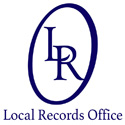
5 Questions All New Homebuyers Should Ask: Mortgage, Down Payment, Credit
New homebuyers should ask as many questions as possible. Buying a home is such a big accomplishment that many people spend a lifetime trying to achieve it. New homebuyers should ask about the down payment, mortgage rates, and much more. Asking a real estate agent and or broker as many questions should be done before taking the first big step.
1. What is the Required Down Payment for New Homebuyers?
Down payments vary from lender to lender and city to city but they are similar in many ways. The ideal down payment is 20%, but if you don’t have the cash there is still hope. There are many first-time homebuyers grants and programs out there. Here is the top 4:
- HUD First-Time Homebuyers Program
HUD programs are programs that the state and different counties offer for first-time home buyers and down payment assistance programs. Some states even offer grants for closing costs for borrowers. - FHA Home Loan Program
FHA home loan programs are one of the most popular because it helps many first-time homebuyers more than any other type of mortgage program. People tend to qualify for these programs because loans are much flexible than other traditional loans.
FHA home loans are so flexible that even a person with a poor credit score of 580 can still qualify with 3.5% down.
- USDA Loans
U.S. Department of Agriculture loan program also known as USDA is for low-to-moderate-income home buyers in countryside areas of the country. 97% of the countryside that’s eligible for USDA loans requires NO down payment. - VA Loans
The Veterans Administration loans also known as VA loans are a home buyers program for active and retired veterans. The majority of the VA loans require NO down payment; this program makes it easier for veterans to become first-time home buyers.
2. My Down Payment is Much Higher Than Advertised, Why is That?
Just like the hidden fees, credit cards have in fine print down payments do too. In the disclaimer, you will see that the ad says, “This is the best possible rate”. This is the equivalent of lower credit card rates for people with excellent and higher rates for people with poor credit. For the best results, you will need to have a high credit score and a low loan-to-value ratio.
3. 30-Year Fixed-Rate Loans Seem to be The Best Option for a Lower Payment is This Correct?
This might be one of the most common questions first-time home buyers and renters have. There is no one-size-fits-all loan option; good research is necessary on your part. Here are some pros and cons of a 30-year fixed-rate mortgage:
- Pros: A 30-year fixed-rate loan term won’t break the bank every month by stretching out the repayment of the loan over more time. This option also allows the buyer to pay more each month if possible, but you can always fall back on the smaller payments as needed.
- Cons: Since the lenders are taking a risk of not getting repaid they will charge higher interest rates. Paying interest for 30 years adds up to a much higher total cost compared to a 15-year fixed-rate loan.
An adjustable-rate mortgage could make sense if you plan to move soon or can’t afford the fixed rate. Obviously, a 15-year loan is an option if you have extra cash laying around to cover monthly bills.
4. Is Private Mortgage Insurance Necessary for New Homebuyers?
In most cases when the buyer can’t afford a 20% down payment you’ll be stuck paying for Private Mortgage Insurance also known as PMI. PMI protects the lender if the buyer isn’t able to make the monthly payments.
5. What Happens if I Can’t Make My Monthly Mortgage Payments?
If you are not able to make your monthly payments on time your account will become delinquent and will bring your credit score down. Letting your lender know you can’t make your monthly payments will help so he or she will help you qualify for a ‘grace period’ or even forbearance.
If you still can’t make your payments after that your home will be repossessed, your lender will sell to get the money to repay the debt.






